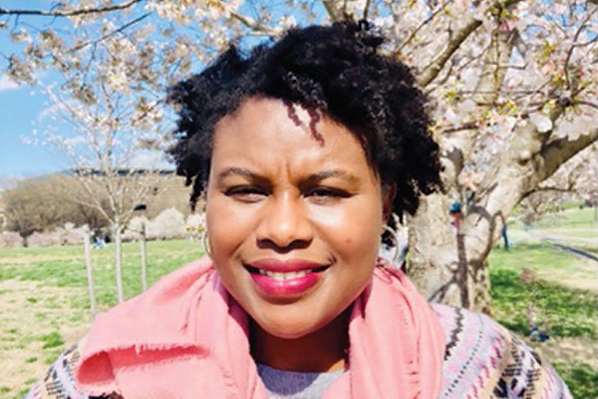Alexanderia Baker Haidara

Every afternoon, I rushed to the library, working tirelessly on my senior project, “Our Voices: The African American experience at Phillips Exeter Academy,” a brochure to specifically attract prospective Black students.
Dean Russell Weatherspoon was my adviser at the time. The Exeter archives became my peaceful place on campus. After discovering Exeter’s Black hidden figures, I felt like I belonged here.
If I had known that Exeter had admitted African American students 139 years before my arrival, I would have walked around campus with more confidence and purpose. Maybe I would not have felt intimidated in class.
Moses Uriah Hall, the first Black student at Exeter, entered the Academy in 1858, five years before the Emancipation Proclamation freed slaves. Young Moses could have been kidnapped and sold into slavery like his uncles at any moment.
The Academy soon admitted more Black students, furthering its commitment to attract “youth from every quarter.” Henry C. Minton, class of 1891, hailed from South Carolina. He was editor of The Exonian newspaper and later became a medical doctor, at a time when Black Americans had been free for only 26 years. How inspiring it would have been to have known that Booker T. Washington Jr., the son of civil rights icon Booker T. Washington, had attended the Academy in 1907.
In late spring of my senior year, Exeter’s campus was flooded with alumni from the class of 1979. I stood in awe watching them admire the new buildings and reconnect with their past. However, I was disappointed to see so few Black alumni in attendance and made a promise to myself to stay connected to the Academy.
My research indicated that there were Black students in the class of 1979 and definitely in the 1980s. Why weren’t they attending their class reunions? From my conversations with many Black alumni and students, I found that Exeter had simply been traumatic for them. An opportunity that was supposed to help give Black students a full-court advantage in achieving the American dream instead left them with deep racial wounds that would take years to heal.
Unfortunately, I was a victim of racism. One cold, wintry night a man in his truck drove by Main Street and shouted the N-word at me. While the principal apologized and tried to address the problem, I was still in shock. I could not run or cry to my mom in my dorm room for love and reassurance. Dealing with racism is just too much for a teenager to endure.
Nevertheless, Exeter is still an embedded part of my childhood, and luckily, I have more happy memories than tragic ones. Going to Friday night dances at the Afro, attending the Annual Soul Food Dinner and dancing the night away on a cruise line for prom were unforgettable. Since graduation, I have attended class reunions and volunteered on the Admissions team. On many occasions, I have returned to campus unannounced, but my former teachers cleared their schedules because I was in town. On the pathways, students greeted me with their warm smiles and waves of hello. After all, I stand on the shoulders of 164 years of Black alumni who came before me.
I know that for my fellow Black Exonians, returning to campus is complicated. Exeter must rebuild relations with its Black alumni, students and faculty members. I would encourage the Academy to do more to heal the relationship. It is time for us to strive to truly make the Academy a welcoming place for “youth from every quarter.”
Editor’s note: This feature first appeared in the spring 2022 issue of The Exeter Bulletin.


